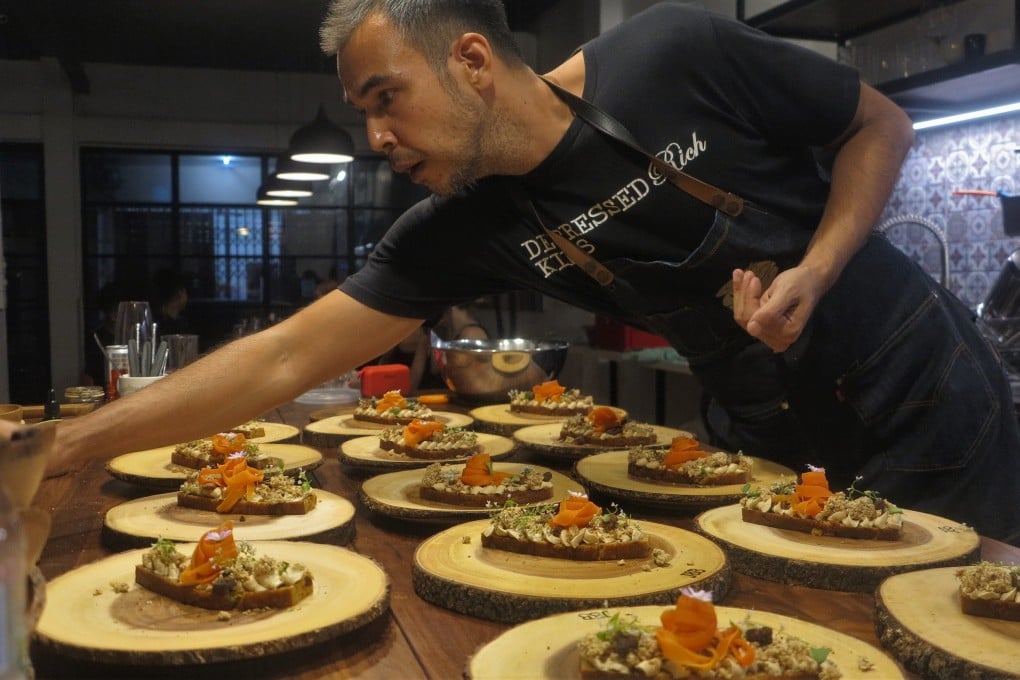Will 5-star cannabis cuisine in Thailand catch on? We try the ‘first’ fine-dining marijuana menu
- The ‘Bong Appetit’ menu at Phuket’s The Slate resort served up a scrumptious array of seafood, meat and local produce with added CBD
- Prospects for cannabis cuisine in Thailand remain unclear, says one chef, who questions demand and predicts stringent controls will remain on pot in food

Dinner began just like any other multicourse gastronomic odyssey at a five-star hotel, with an assortment of adorable appetisers. These were followed by a menu of delicacies such as Phuket lobster and prawn linguine, elegantly presented in swirls of foam, sauces and sautés.
But then the epicurean express swerved off the tracks. Things got goofy, but exactly where is tough to pinpoint. My notes taper off after the second course.
Perhaps the marijuana cocktails should have served as a warning.

A ganja gold rush swept the capital Bangkok even before restrictions officially ended on what had been considered a most dangerous drug, on par with heroin. Trucks rolled through one of the world’s street food meccas offering jars of buds and joints. Dispensaries bloomed and the scent of cannabis swept through side streets.